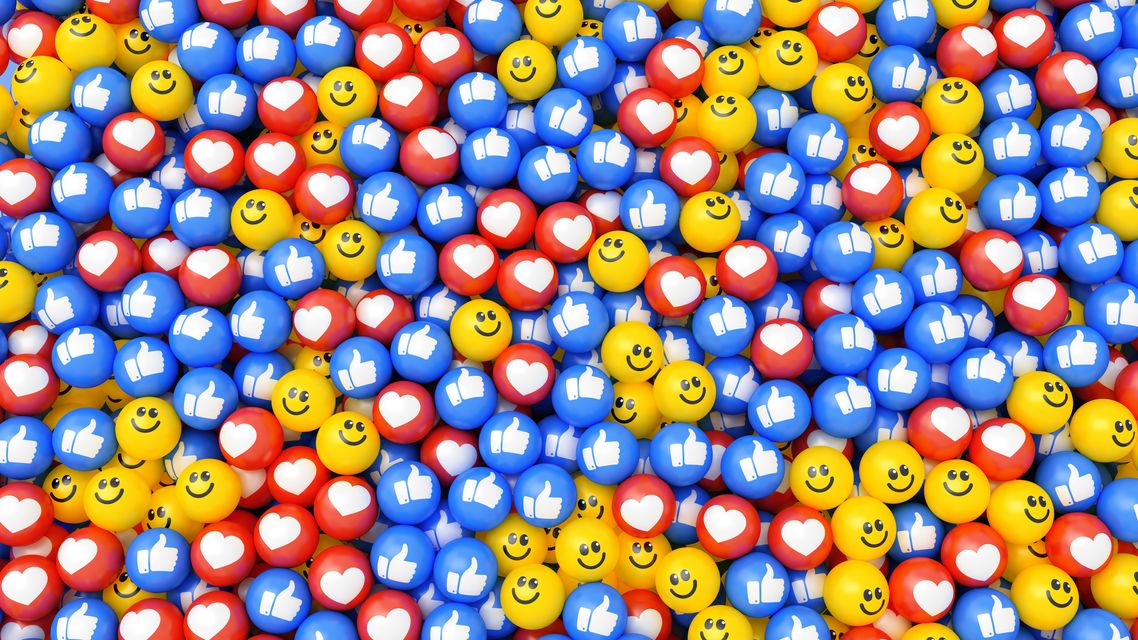Social-media platforms pose “a profound risk of harm to the mental health and well-being of children,” and there is not enough evidence “to determine if social media is sufficiently safe for children and adolescents,” according to an advisory note from the U.S. surgeon general.
Tuesday’s 25-page advisory comes as the possible effects of social media on the mental health of children and teens has in recent years come into increasingly sharp focus. The surgeon general cites one study finding that kids aged 12 to 15 who spent more than three hours a day on social media faced twice the risk of a negative mental-health outcome, particularly depression and anxiety, compared with people in the same age range who didn’t use social media at all.
And there has been some evidence linking social-media usage to poor mental-health outcomes in young girls, in particular, compared with boys. “Greater social media use predicted poor sleep, online harassment, poor body image, low self-esteem, and higher depressive symptom scores with a larger association for girls than boys,” reads one study of 14-year-olds cited in the surgeon general’s advisory.
Heavy social-media use has been linked to some mental-health problems among all people, as large amounts of time spent on these platforms may, again, disrupt sleep, expose people to cyberbullying, create unrealistic views of other people’s lives and increase loneliness, numerous studies have determined.
From the archives (September 2021): ‘Young teens shouldn’t be on social media,’ former Facebook security chief says
But since younger Americans tend to use social media more than older Americans — and they often don’t have the maturity to deal with everything to which they are exposed on social media — they may be at greater risk for physical and emotional health problems. Data suggest that members of Generation Z (generally defined as anyone born between 1997 and 2013) spend more time online than people in most other age groups. According to a 2022 report from Statista, Gen Z spends an average of three hours on social media a day, compared with 2¼ hours a day for millennials. The most popular social-media platforms viewed most favorably among Gen Z include TikTok, Snapchat, YouTube and Meta’s
META,
Instagram.
Many of these social platforms have said they are addressing mental-health concerns by rolling out features designed to make users more mindful of how they are spending their time online. TikTok recently instituted screen-time limits for teenagers to promote “digital well-being,” for example. Snapchat
SNAP,
has time limits within its parental-control features, as does the YouTube, owned by Google parent Alphabet
GOOG,
GOOGL,
Instagram last year had daily time limits that users could set up themselves, but it has since removed the feature, according to a report by TechCrunch.
“As a messaging service for real friends, we applaud the surgeon general’s principled approach to protecting teens from the ills of traditional social-media platforms. Snapchat doesn’t encourage perfection, popularity or stranger contact, and we don’t broadly distribute unmoderated public content, which helps prevent the promotion and discovery of potentially harmful material,” a Snap spokesperson told MarketWatch.
Representatives for Google, Meta and TikTok did not immediately respond to MarketWatch’s requests for comment for this story.
There also might be benefits to using social media, according to the Adolescent Brain Cognitive Development Study, which began compiling data in 2015. Its research shows, for example, that social-media platforms have been used as stress relievers for some children.
The surgeon general’s advisory also states that social media can help promote self-expression in children, aid in maintaining friendships and create positive interactions with a more diverse peer group. It adds that more analysis of social-media habits among children is needed.
Opinion: Instead of banning TikTok, Congress should do its actual job
Government officials have of late begun to prioritize the protection of children’s safety online.
“Big Tech is knowingly fueling a mental-health crisis in this country by exploiting kids and teens just so they can make an extra buck,” Sen. Ed Markey, a Massachusetts Democrat, said in a May statement.
Markey was advocating for the passage of Children and Teens’ Online Privacy and Protection Act, or COPPA 2.0, which would raise age thresholds for privacy protections to 16 from 13, ban targeted ads on social-media accounts for children, as well as several other initiatives.
And earlier this month, Montana became the first state to ban TikTok, citing privacy concerns. The federal government, and other government entities in the U.S. and abroad, have banned TikTok from government-owned devices.
President Joe Biden at times has been critical of social-media platforms. “We must finally hold social-media companies accountable for the experiment they are running on our children for profit,” the president said during his State of the Union speech in February.
In a Tuesday statement, the White House signaled a belief that America’s youth are suffering through a mental-health crisis, calling the situation “unprecedented.”
Read on: Meta begins third round of layoffs, reports say
Read the full article here


